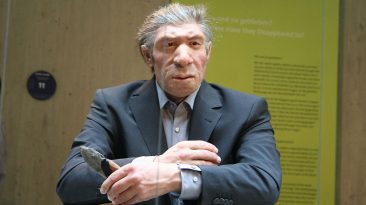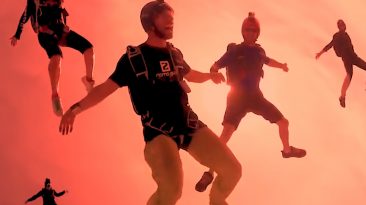If you had a device designed to freeze time for everything but you, life wouldn’t be anything like what you’d expect. You wouldn’t catch up on sleep, or rob a bank while no one can stop you, or cheat on an exam.
Instead, you’d be left blind, deaf and unable to move a single muscle. How can time freezing go so wrong?
We know from physics that speed equals distance divided by time, and that time equals distance divided by speed.
To make time equal zero you’d have to travel indefinitely fast. And since we can’t overcome the speed of light, stopping time without breaking the laws of physics is not going to be possible.
But let’s skip the improbabilities and imagine that time could be stopped somehow. What would happen then?
Absolutely nothing. And I mean it. People would stop moving. Water would stop running. Our planet would stop spinning. Every molecule would just stand still.
You wouldn’t even know that time had stopped, because your neurons wouldn’t be moving either. Boring.
Let’s add a couple of modifications to our scenario. What if you were the one to hit the pause button?
[dx_custom_adunit desktop_id=”RTK_CDE4″ mobile_id=”RTK_SUFd”]Oh, that wouldn’t end up well for you, not this time. The ability to freeze time comes with very unpleasant side effects.
First, you wouldn’t see anything. That is because stopping time would stop photons – the particles of light normally moving at the speed of, well, light.
You wouldn’t hear anything either, because soundwaves would stop traveling through air to your eardrums. You’d be trapped in between the frozen molecules surrounding you, unable to lift a finger.
It would get even worse once you realized that you can’t force oxygen molecules down into your lungs. Blind, deaf and asphyxiated – hopefully you could resume time before you passed out.
To get around this quick and senseless end, we’ll add another modification. This time you’d be surrounded by a bubble inside of which time would still be going. You’d also be able to time-affect space around you. That would give you the ability to move and breathe.
You still won’t be able to hear anything outside of the bubble. And how about seeing?
Well, you could move along and capture light from every direction. But your brain probably wouldn’t be able to decode any of that information. Everything would be washed out. Not much fun either.
What if instead of stopping time you just slowed it down significantly? Even that wouldn’t be much help.
If you slowed down light, it would shift into the realm of infrared microwaves. While it could reach your eyes, it would be invisible. As a result – this would be the only view you’d get.
Same thing goes for soundwaves – they’d drop to a frequency below the range of human hearing.
Time freezing isn’t that practical after all. Maybe going back in time be would be a better option.
Sources
- “What Would Happen If You Stopped Time?”. Hamer, Ashley, 2018. curiosity.com. Accessed February 24 2019.
- “The Physics Of Stopping Time: What Would A World Without Time Be Like?”. Barker, Daniel, 2014. Futurism. Accessed February 24 2019.
- ” UCSB Science Line “. 2019. scienceline.ucsb.edu. Accessed February 24 2019.



























